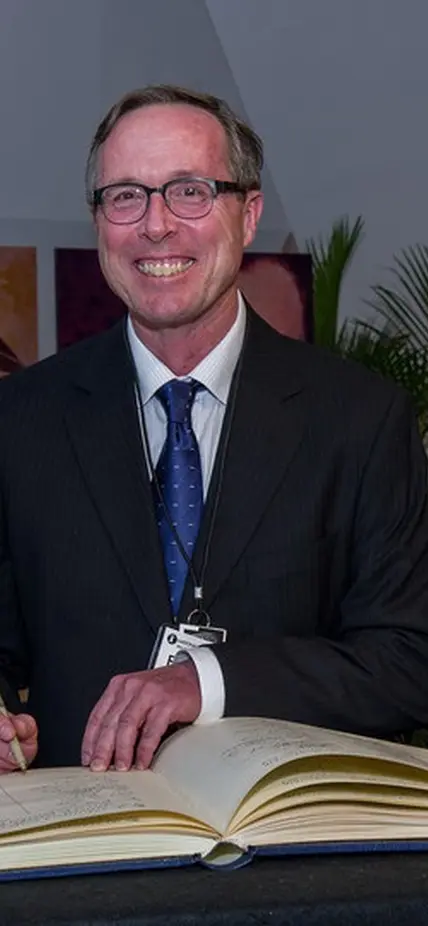Washington, DC — Richard Carlson, director of Carnegie’s Earth and Planets division, has been chosen to receive the Geochemical Society’s highest honor, the Victor Moritz Goldschmidt Award, in recognition of his forefront research into the formation of the Solar System and the geologic history of the Earth, the society announced Tuesday.
The society will present the award to Carlson at the Goldschmidt Conference, to be held in Honolulu in June.
“I am deeply honored to receive the V.M. Goldschmidt Award, which recognizes our efforts to understand the origin and evolution of Earth’s continental crust on Earth and the consequences of its formation on our planet’s chemical constitution and interior structure,” Carlson said. “The Geochemical Society is an important advocate for science around the world, and I am humbled by this recognition from the society and the international community of geochemists.”
“Richard Carlson’s innovative research sets a standard for scientific excellence, and his work has transformed our understanding of the Earth and our Solar System,” said Carnegie Science President Eric D. Isaacs. “This award recognizes the powerful results that can be achieved when great scientists have the freedom and independence to follow their curiosity, pursue novel research approaches, and tackle some of the most significant scientific questions of our time.”
Carlson, who has been a Carnegie staff member since 1981, is renowned for his use of isotope geochemistry to understand the origin and evolution of the early Solar System, the Moon, and the Earth’s ancient crust. He earned a B.S. in chemistry at the University of California-San Diego and a Ph.D. in Earth science at the Scripps Institution of Oceanography. He is a former editor of the journal Earth and Planetary Science Letters and is a past President of the Geochemical Society. He is a Fellow of the Geochemical Society, American Academy of Arts & Sciences, and the American Geophysical Union (AGU), a Member of the U.S. National Academy of Sciences, and recipient of the 2008 Bowen Award of the AGU and the 2013 Arthur L. Day Medal of the Geological Society of America.
